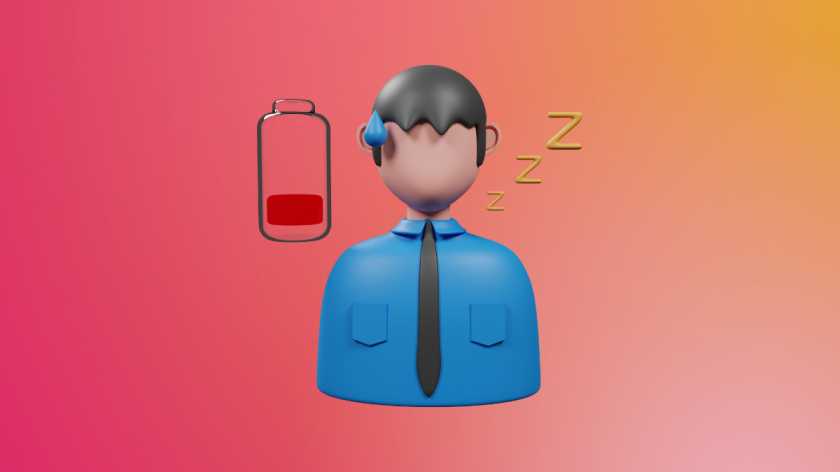The hot months of summer are here! Temperatures are soaring and summer burnout is about to get very real. As someone who has experienced this firsthand, I know just how frustrating and draining it can be.
My experience with summer burnout happened a few years ago. I had just finished up a particularly busy and stressful academic year, and I was looking forward to taking some time off during the summer months to relax and recharge. However, instead of feeling refreshed, I found myself feeling overwhelmed and exhausted.
My mood was often gloomy to the point of being depressed by the weather. I just couldn’t figure out what was happening to me. I had always enjoyed the summer months as a time to unwind and take a break. But as the days went by, I found myself feeling more fatigued than usual. I was having trouble sleeping, my appetite had decreased, I would have frequent headaches and very little energy. This was severely affecting my motivation to do anything.
The Summer Burnout
It wasn’t until I did some research that I realised I was experiencing summer burnout. I learned that summer burnout is a common experience for many people, and it can be caused by a variety of factors.
One of the biggest causes of summer burnout is the heat and humidity. During the summer months, our bodies have to work harder to regulate our body temperature, which can leave us feeling tired and drained. Apart from this, there are a few other factors which might lead to summer burnout, which will be discussed further in this article. We will also see some tips on how to avoid summer burnout and have a worry-free summer this year.
So what contributes to summer burnout?
Overworking during the summer
While summer can be a great time to catch up on work, overworking can lead to burnout. If you find yourself working long hours, take regular breaks to give your mind and body a chance to rest. Consider prioritising your workload and setting achievable goals to avoid feeling overwhelmed.
Too much sun exposure
Spending time outdoors is a great way to enjoy the summer months, but too much sun exposure can lead to fatigue and dehydration. Make sure to wear sunscreen, take breaks in the shade, and stay hydrated by drinking plenty of water and avoiding excessive alcohol or caffeine consumption.
Travelling
Summer is a popular time for travel, but long flights and jet lag can lead to exhaustion and burnout. If you’re travelling, make sure to give yourself plenty of time to adjust to new time and weather zones. And yes, remember to take breaks to rest and recharge.
Summer FOMO
With so many social events and activities happening during the summer, it’s easy to feel like you’re missing out on something. However, overbooking yourself can lead to burnout. Prioritise the events that are most important to you and permit yourself to say no to others.
Unhealthy eating habits
Summer is a time for chilled foods like cold drinks and ice cream. But the ever-delicious fried and fast food is also tempting. Giving into your temptations for fast food can leave you feeling sluggish and tired. Consider incorporating healthy foods into your summer diet, such as fresh fruits and vegetables, and limit your intake of processed foods and sugary drinks.
Pressure to take a summer break
While many people enjoy taking a summer vacation, there can be pressure to make the most of this time off. The pressure to have the perfect summer can lead to burnout, as people try to fit in too much travel or activities in a short period. To avoid this, consider taking a staycation or planning a low-key vacation that prioritises relaxation over activities.
Excessive socialising
Summer is a great time to socialise, it’s great for one’s mental health. However, too much socialising can lead to burnout, especially for introverted individuals. To avoid this, be selective about social events and prioritise those that are most important to you. It’s okay to say no to social invitations and take time for yourself.
School and college students
For students, summer break can feel like a time to catch up on school work, internships or jobs, and extracurricular activities. However, this can also lead to burnout, as students often feel the pressure to accomplish too much during their break. To avoid this, prioritise your time and set achievable goals. Allow yourself some downtime to recharge and relax.
Lack of routine
Summer can mean a break from our routine, which can be a good thing. However, it can also lead to burnout as we struggle to find structure in our day-to-day lives. To avoid this, consider creating a new routine that allows for some flexibility but still prioritises healthy habits such as exercise, healthy eating, and quality sleep.
Financial stress
Summer activities and vacations can be costly, which can lead to financial stress and burnout. To avoid this, plan your budget and prioritise the activities that are most important to you. Consider less expensive alternatives such as picnics, free outdoor events, or DIY home projects.

Apart from the mentioned factors, we can follow simple tips and stress management techniques in our daily routine to improve the quality of our well-being.
A few tips to avoid summer burnout
- Get plenty of rest – Lack of sleep can contribute to feelings of fatigue and exhaustion. Make sure you are getting enough rest each night, and try to establish a regular sleep schedule.
- Stay hydrated – Dehydration can also contribute to feelings of fatigue and exhaustion. Make sure you are drinking plenty of water throughout the day, especially during hot and humid weather.
- Take breaks – To give your mind and body a rest, it’s important to take regular breaks throughout the day. This can be as simple as reading a book, walking indoors or even just taking a nap.
- Set realistic goals – It’s important to set goals you can actually achieve. You set yourself up for success by setting realistic expectations for yourself.
- Establish a routine – Even though your schedule may be different during the summer months, it’s still important to establish a routine. This can help give your day structure and help you feel more organised.
Summer burnout is a real phenomenon that can affect anyone, regardless of age or lifestyle. By being mindful of the factors that can contribute to burnout, you can enjoy the summer months to the fullest while still prioritising your well-being. Remember to take breaks, prioritise relaxation, and don’t feel pressured to do too much. Enjoy the summer season in a way that works best for you while avoiding summer burnout.



2 Comments